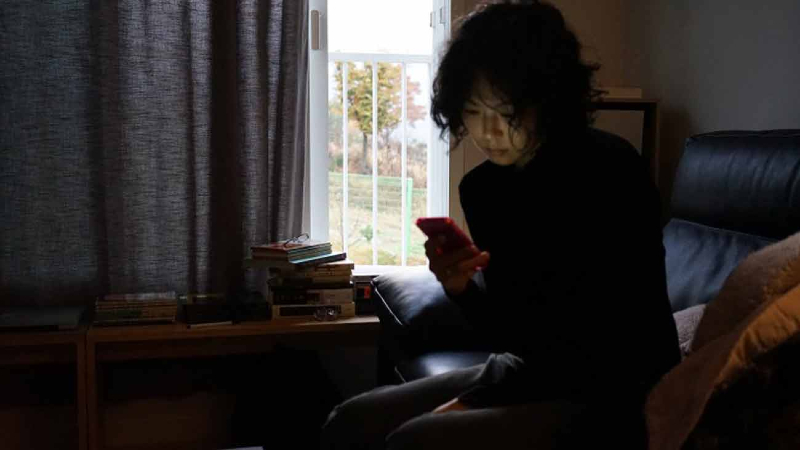Director – Hong Sang Soo – 2020 – South Korea – Cert. 12A – 77m
*****
Three women – plus one. An urban woman’s visits to three out-of-town friends gently calls into question both their and her everyday lives – at Curzon Bloomsbury and on Curzon Home Cinema from Friday, December 11th, then on MUBI from Sunday, December 20th
Seoul resident Gam-hee (Kim Min-hee) is away from her husband for a few days and while he’s on a rare business trip is taking the opportunity to visit old friends. As she explains to each of them, her husband says that people in love should stick to each other. She feels loved.
Yet this mantra is called into question by the presence and lives of the three women she visits. Divorcee Young-soon (Seo Young-hwa) has a nice little apartment which she shares with a flatmate Young-ji (Lee Eun-mi) who is an incredible cook. Su-young (Song Seon-mi), who puts together dance performances, has discovered a nice little local bar full of artists, architects and other creative types. Woo-jin (Kim Sae-byuk) is tiring of her famous author husband Mr. Jung (Kwon Hae-hyo) who she thinks talks too much.
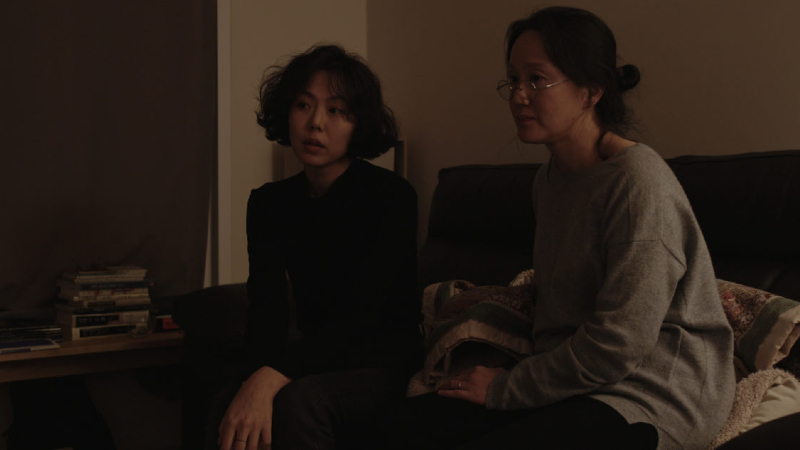
Jung is only seen briefly towards the end and is representative of the men in the film in that he is a peripheral character in the drama. Gam-hee happens to run into him leaving the arts centre where Woo-jin works because the two of them have just had lunch and where he is doing a talk. They had a romantic attachment a long time ago, but now she tells him what she thinks of him, which is pretty much what Woo-jin has already articulated to her.
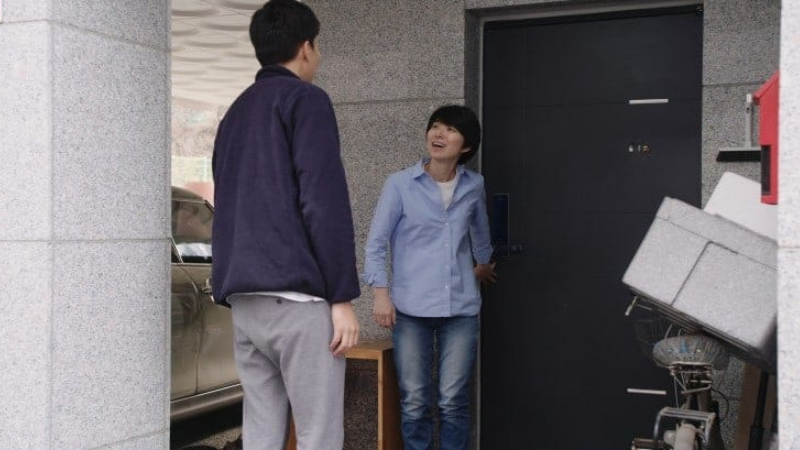
The other hapless men in what is very clearly a woman’s world are Young-soon’s new neighbour who uses his unseen wife’s fear of cats as grounds to demand Young-ji and Young-soon stop feeding the local “robber cats”, a demand to which Young-ji shows no intention whatsoever of acceding, and the 26 year old poet smitten with Su-young after she made the mistake of sleeping with him one night, after which he won’t leave her alone and keeps turning up at her front door. All three men are shown outside the door of the women’s place of residence or work, very far from central to these women’s lives. While Gam-hee’s husband isn’t shown at all.
These sequences, like the shorter exterior passages of Gam-hee arriving at or leaving her various friend’s residences or places of work, serve as punctuation to the film’s three main episodes, wherein Gam-hee spends time with each of the three friends. They drink coffee, the hosts prepare meals which they eat, they talk.
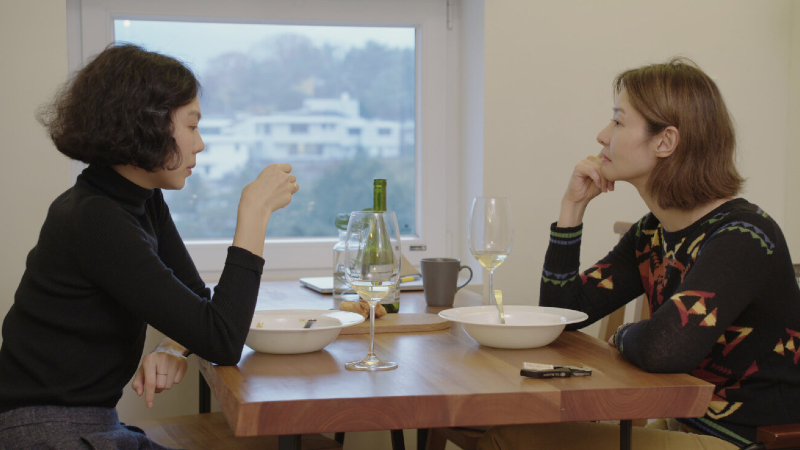
Running counter to Hitchcock’s famous decrying of films consisting of no more than “pictures of people talking”, Hong Sang-soo has an incredible gift for showing two women having a very ordinary conversation and somehow making it both compelling and highly cinematic. Part of this must be his eye – like Hitchcock (although completely different in the type of movies he makes), Hong always seems to know exactly where to put the camera and exactly when to move it. Part of it is his casting of actresses who play characters which feel like they’ve been built around the actresses who play them. And part of it must be down to his dialogue, presumably a mixture of judicious scripting and on-set improvisation.
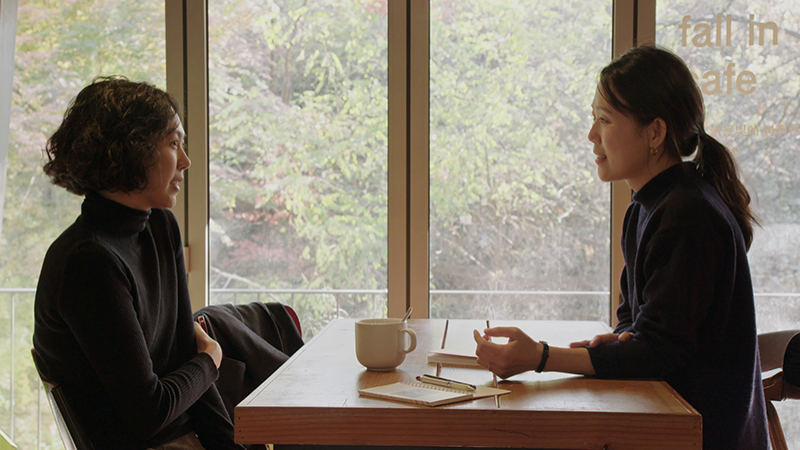
As we observes Gam-hee’s encounters with her three friends, the subtle differences between their three characters and indeed between theirs and her own speak volumes about the differences between their various lives – and begs massive questions about her relationship with the husband that we never see. Describe a typical, recent Hong Sang Soo film and nothing much happens – much of the running time consists of people sitting around having conversations or eating meals – which sounds like it ought to be really boring.
Yet, when Hong makes movies out of such seemingly banal material, something magical happens and the viewing experience becomes utterly compelling, albeit in a very gentle, undemanding way. Never more so than in this particular little gem, which is one of Hong’s very best.
The Woman Who Ran is out at Curzon Bloomsbury and on Curzon Home Cinema from Friday, December 11th, then on MUBI from Sunday, December 20th
Trailer:
